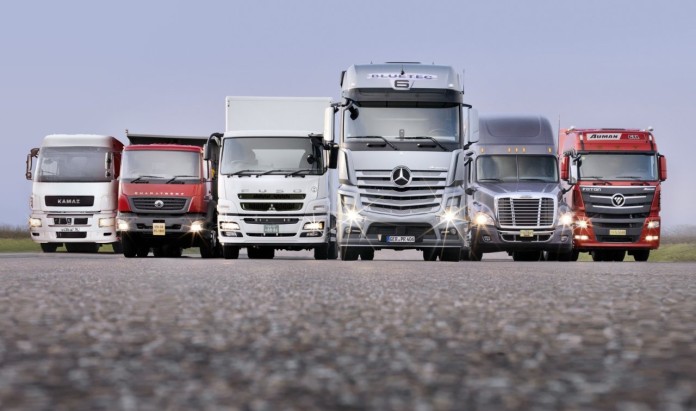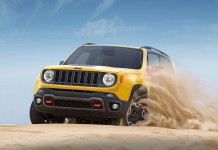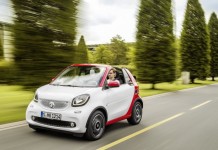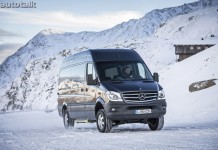Daimler Trucks, the world’s leading truck manufacturer, is setting the course for a return to the Iranian market, having signed letters of intent with its local cooperation partners Iran Khodro Diesel (IKD) and the Mammut Group. Daimler AG have already had successful business relations with IKD for the past 50 years. IKD is a subsidiary of Iran Khodro Industrial Group, the largest vehicle manufacturer in the MENA region having more than 50% market share in Iran and has been cooperating with Daimler for over half a century. The areas of cooperation include a joint venture for local production of Mercedes-Benz trucks and powertrain components plus the establishment of a sales company for Mercedes-Benz trucks and components. Furthermore, there are plans for Daimler to return as a shareholder in the former engine joint venture Iranian Diesel Engine Manufacturing Co. (IDEM). In addition to this, both partners are looking at establishing a joint venture for local sales of Mercedes-Benz commercial vehicles. Daimler and IKD are about to benefit from each other’s competitive advantages to satisfy the large demand for trucks. In the short term, therefore both parties have a strategic alliance on a win-win basis through joint ventures in their scope.
Dr. Wolfgang Bernhard: “Daimler commercial vehicles have always had an excellent reputation in Iran. And right now, there is a huge demand for commercial vehicles, especially trucks. We plan to quickly resume our business activities in the market there. The signing of the letters of intent with our local partners IKD and Mammut Group are important pre-requisites to resume business quickly.”
High pent-up demand in Iranian truck market
With its growth potential following many years of sanctions and the pent-up demand in the transport sector, Iran offers promising opportunities for Daimler Trucks. Despite the sanctions, Iran was one of the largest national economies in the Middle East, with a nominal gross domestic product (GDP) of 415 billion US dollars in 2014. Industry accounts for almost half of the Iranian national economy. The Ministry of Industry, Mine and Trade estimates that about 200,000 commercial vehicles will be replaced in the coming years – some 56,000 of them in the next three to five years alone.
Professionalization of sales and after-sales
By signing the letter of intent, Daimler Trucks has started the process for a comprehensive re-entry into the Iranian market considering the persistent sanctions regime and further export control regulations. The first Mercedes-Benz Actros and Axor trucks could be supplied to the country in the form of CKD (completely knocked down) kits before the end of the year. In addition to this, Daimler Trucks is pursuing the aim of establishing an even firmer foothold in the local market by revitalizing the engine cooperation with IDEM and establishing a sales joint venture. Furthermore, Daimler Trucks is aiming to establish a sales joint venture to professionalize all sales and after-sales activities in Iran. Daimler Trucks likewise intends to open a representative office in Tehran during the first quarter of 2016. With these commitments, Daimler Trucks is therefore committed to assist with the country’s economic and social development.
Sales of FUSO trucks together with Mayan Mammut Group
In addition to the plans for Mercedes-Benz trucks, Daimler Trucks also sees great opportunities for Mitsubishi FUSO – especially in the light-duty-truck segment. Here FUSO offers the world’s most proven and successful light-duty truck in the shape of the Canter. To open up this market, Daimler and Mayan have signed a distribution agreement for the FUSO brand. Mayan is part of the Mammut Group. The Dubai-based Mammut Group is one of the Middle East’s largest truck bodybuilders and distributors. Mayan will be responsible for opening up the Iranian market in close cooperation with FUSO.
Mercedes-Benz trucks: Successful history in Iran
Daimler can build on a long and successful history in Iran: The company has been present in the market with Mercedes-Benz trucks and passenger cars since 1953, interrupted only by the sanctions phase between 2010 and 2016. Mercedes-Benz commercial vehicles are still present here and remain very much visible on Iran’s roads. Previously Daimler sold up to 10,000 vehicles per year here, most of them commercial vehicles.
Daimler Regional Center for Commercial Vehicles
Daimler’s commercial vehicle business in in the Middle East and North Africa (MENA) is organized through a regional center. From its base in Dubai, Daimler Commercial Vehicles Middle East & North Africa (DCV MENA) is supporting 19 countries – from Morocco to Pakistan. The new company is responsible for business in the region with the group’s entire commercial vehicle portfolio – from the Mercedes-Benz Citan city van to the Mercedes-Benz Actros heavy-duty truck.







